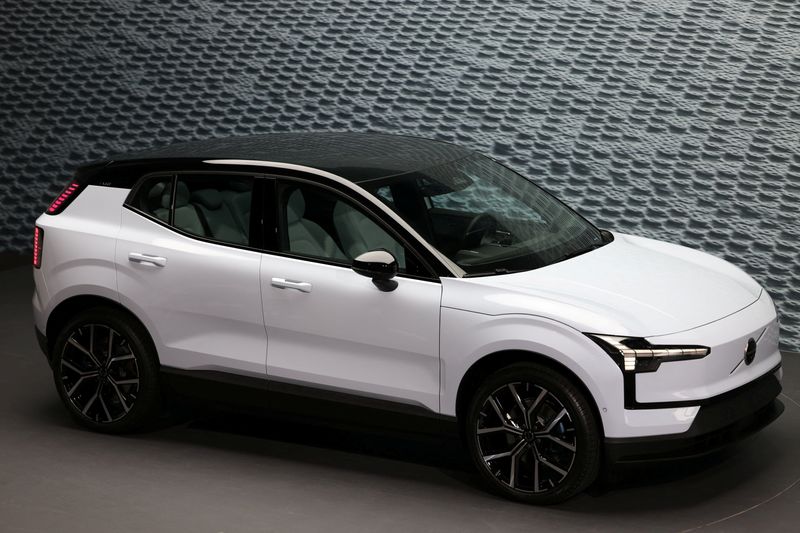(Reuters) – Volvo Cars has started moving production of Chinese-made electric cars to Belgium, the Times reported on Saturday, in anticipation of an EU crackdown on imported cars subsidized by Beijing.
The European Commission, which oversees trade policy in the 27-nation bloc, launched an investigation last year into whether Chinese-made pure electric vehicles received distortionary subsidies and required additional tariffs.
Volvo, controlled by China’s Geely, is considering stopping sales of Chinese-made electric cars to Europe if tariffs are imposed, the newspaper said, citing company insiders.
However, the report adds that moving production of Volvo’s EX30 and EX90 models from China to Belgium means the company does not have to stop sales and is no longer considering doing so.
The Times said manufacturing of some Volvo models destined for the UK may also be moved to Belgium.
“It is too early to speculate on the conclusions of this investigation or the impact of any potential measures,” a Volvo spokesman told Reuters of the EU probe.
The decision to build the EX30 in Belgium and start production in 2025 was to produce as salable a car as possible, the spokesman said, adding that the EX90 is produced in the United States, not China.
The spokesperson said that Volvo confirmed in October last year that it would increase production capacity of the EX30 in Ghent from 2025.

The EU countervailing investigation was officially launched on October 4, and the investigation period can last up to 13 months. The Commission can impose provisional countervailing duties nine months after the start of an investigation.
Relations between China and the EU have been strained by factors including Beijing’s closer ties with Moscow following Russia’s invasion of Ukraine. The EU is seeking to reduce its dependence on the world’s second-largest economy, especially for materials and products needed for its green transition.

